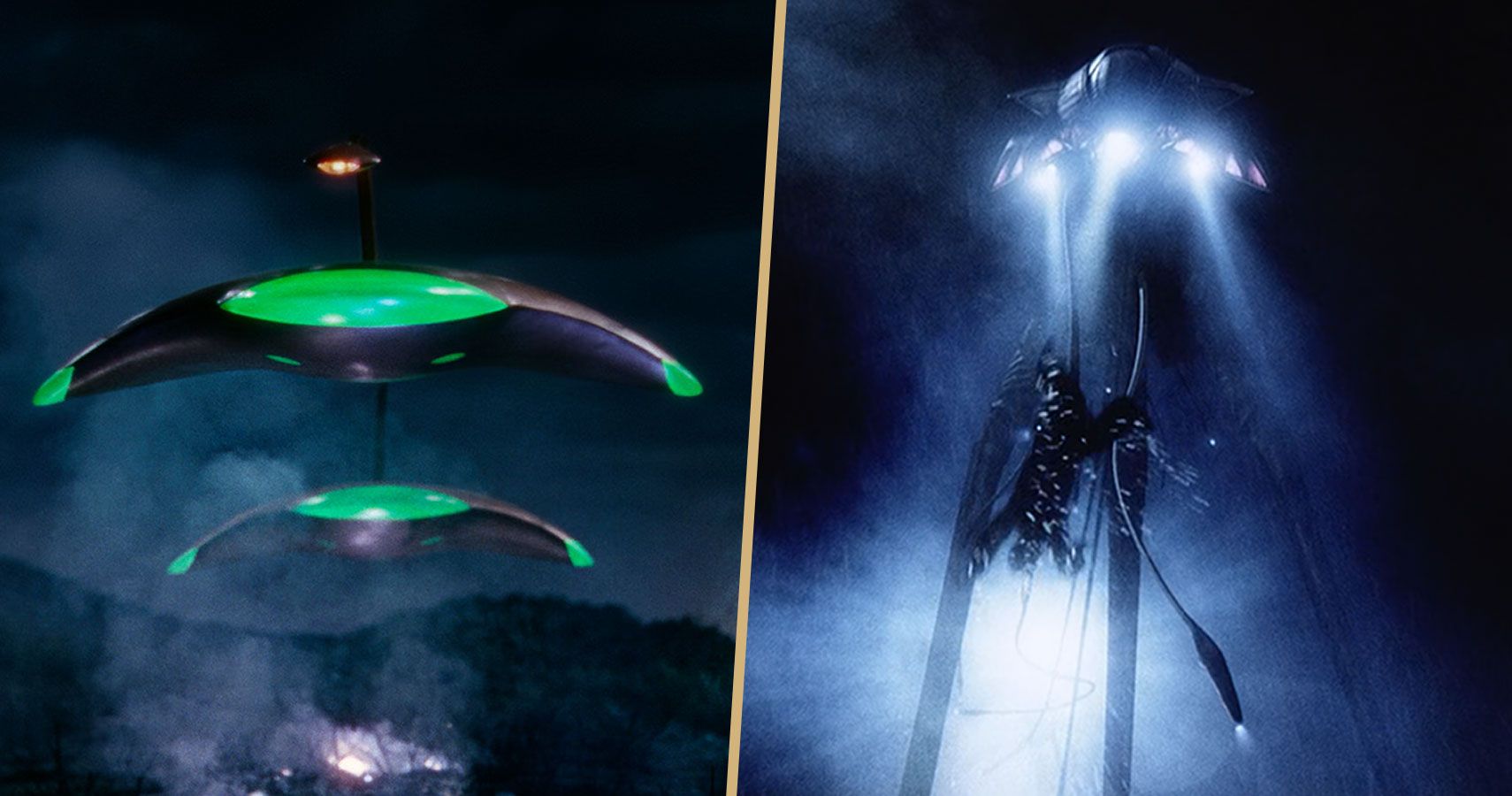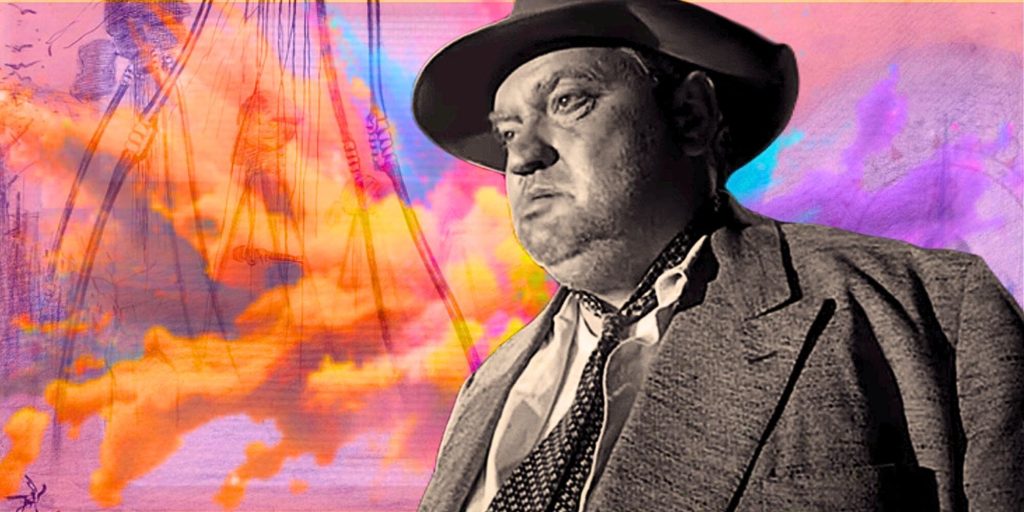Summary
- Orson Welles’ radio adaptation of The War of the Worlds caused some panic, but the extent of the disturbance has been exaggerated.
- The format of Welles’ play was innovative and simulated a genuine radio broadcast, leading some listeners to believe it was real news.
- Despite the backlash, the controversy surrounding the broadcast actually boosted Welles’ career and solidified his place in the entertainment industry.
The mere mention of Orson Welles tends to bring to mind the same incident for everyone, but the facts of the infamous radio broadcast don’t completely align with the folklore. Although Welles did broadcast a radio adaptation of HG Wells’ sci-fi novel, The War of the Worlds, the stories regarding the panic it caused his listeners have been greatly exaggerated. However, there is an element of truth to the tale. Either way, there is still a rich history to the man behind every Orson Welles movie.
Welles began his career in the entertainment industry in his early twenties, getting his start in New York City’s theater scene. The legendary War of the Worlds broadcast took place in 1938 on Welles’ radio anthology series, The Mercury Theater on the Air. Welles’ was 23 years old at the time of the broadcast, and the rumors surrounding the misinterpretion of his production allowed his career to boom in the time after.

War Of The Worlds: 5 Ways The 1953 Movie Is Better (& 5 Ways The 2005 Movie Is)
Which movie wins the war between the two main film adaptations of one of the most groundbreaking sci-fi stories of all time?
Why Some People Believed Orson Welles’ The War Of The Worlds Was Real
The format of Welles’ play was unfamiliar at the time
The frenzied panic that is said to have been instilled in Welles’ listeners during the 1938 broadcast is something of an urban legend. However, although the radio play was clearly billed as a work of fiction, it still tricked a handful of people. At the time, the structure and format of Welles’ adaptation was revolutionary, presented in a way that simulated a genuine radio broadcast. Earlier parts of the play featured songs of the time being introduced, only to be interrupted by actors playing the part of broadcasters who had important news to break.
The interruptions started off fairly benign, but became much more frequent and dramatic as the production progressed. Various “scientists” were called upon to share their expertise on the Martian threat that was being reported. The realism of the acting was ahead of its time, with moments of confusion and mistakes that wouldn’t happen in a polished work of fiction. By the end of the play, the premise of a traditional radio broadcast is abandoned, with the play exclusively “reporting” on the conflict between the aliens and Earth’s soldiers.
The innovative structure of Welles’ version of The War of the Worlds wasn’t commonplace at the time of broadcast, so it’s understandable that a select few were tricked. However, the small pockets of those who bought into the narrative a little too much were made out to be much more wide-spread. Some may have been accidentally deceived by Welles’ radio drama, but not as many as is generally believed.
Backlash To Orson Welles’ The War Of The Worlds Explained
The radio industry changed on the whole after The Wars of the Worlds aired
Via Slate, radio in 1938 was at odds with the newspaper industry. Both the radio and newspapers ran largely on advertising revenue, and many companies had started to favor advertising over the radio rather than in print. As a result, the written press sensationalized the drama around the deception until it became common knowledge. This way, confidence in radio as a news source could be shaken, bringing about a resurgence of the newspaper. In the wake of the broadcast, there weren’t terrified riots in the streets as many have heard.
Instead, Welles was mainly criticized for his use of radio to deliver such a misleading narrative. Radio was relatively new in 1938, and while it was used for entertainment, it was also seen as a trustworthy news source. The science-fiction production hurt the medium’s reputation for a time, and it’s difficult to believe that Welles didn’t expect to mislead at least a few people with his play, despite the disclaimer at the end. HG Wells, the original author of the novel on which Orson Welles based his production, also voiced his displeasure due to his work being used in such a way.
The immediate reaction to Welles’ play was arguably more severe than what lay after. The War of the Worlds was broadcast live on CBS, and according to Welles (Via the BBC), there were police officers in the studio before the play was even complete. It was only then that he learned of the impact of his broadcast. There was outrage in the days that followed that called for radio censorship. While no such act was passed at the time, all radio stations agreed to be more cautious going forward.
What Orson Welles Has Said About His War Of The Worlds Broadcast
Welles had some choice words to say about the deceived members of his audience
The War of the Worlds first aired on October 30 1938, just a day before Halloween. As such, the broadcast signed off with Orson Welles introducing himself and telling everyone he was now “Out of character.” He then delivered a number of good-natured jokes and reassuring statements, most of which were in reference to what his audience had just heard taking place so soon before Halloween.
The War of the Worlds has no further significance than as the holiday offering it was intended to be. The Mercury Theatre’s Own Radio version of dressing up in a sheet and jumping out of a bush and saying ‘boo.’
In the interviews that followed the controversy, Orson Welles insisted that he never expected his audience to take the broadcast as fact, or to cause any alarm. Via PBS, Welles’ retort to an accusatory journalist questioning him about the event consisted of, “I can’t imagine an invasion from Mars would find ready acceptance.” It’s unclear whether Welles was being truthful about the expected impact of his radio drama. Even if Welles had expected his work to be taken in the wrong way, he would have had no way to predict just how widespread the impact would have been.
What Happened After The War Of The Worlds Broadcast
Orson Welles enjoyed a career boost due to the broadcast
Despite all the negative attention that Orson Welles received as a result of the controversy, The War of The Worlds being picked up by the press actually did wonders for the broadcaster’s career. Although he already had a background in directing, his productions had consisted of stage plays and radio dramas before his swell in popularity. In the years that followed, Welles’ took his directorial skills into the movie industry. 1941’s Citizen Kane marked his cinematic debut, and many are of the opinion that Citizen Kane is the greatest movie ever made.
However, he didn’t just serve as the film’s director. Welles also co-wrote Citizen Kane, and produced and starred in the leading role. Alongside his budding movie career, much of which took him to Europe, Welles’ continued to excel in radio. The broadcaster adapted and wrote many more radio dramas over his career. Although the body of work associated with Orson Welles boasts his innate talent for creative works in the entertainment industry, it will remain unclear how many of his achievements would have taken place if not for his controversial 1938 live broadcast of The War of the Worlds.



